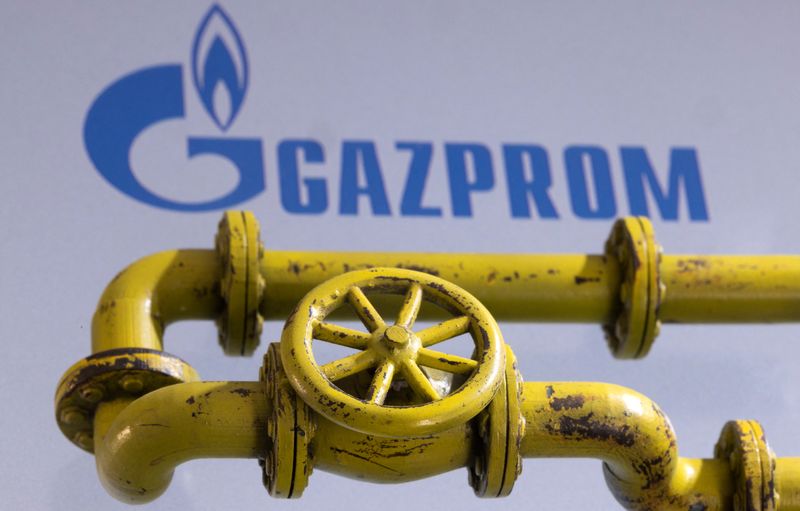European Gas Prices Fall on Signs That Nord Stream Flows Will Resume
2022.09.02 12:17

By Geoffrey Smith
Investing.com — Benchmark European Natural Gas Futures fell sharply on Friday to their lowest in two weeks on signs that Russian gas will resume flows through the Nord Stream 1 pipeline to Germany from Saturday.
By 03:25 ET (07:25 GMT), the front-month Dutch TTF contract, the benchmark for northwest Europe, was down 8.6% at 222.00 euros a megawatt-hour.
The contract had dipped as low as 218.22 EUR/MWh after the pipeline’s operator signaled that shipments would start again as of 2 AM in Berlin on Saturday, allaying fears that state-owned gas monopoly Gazprom (MCX:GAZP) would keep the pipeline shut for longer.
Resumed shipments and a sharp reduction in consumption by industrial users due to high prices make it more likely that Europe will meet its targets for filling storage capacity ahead of the peak winter demand season with time to spare. That will reduce the need for the kind of panic buying on the global spot market that has characterized the year so far.
However, that doesn’t mean that prices are about to go into freefall, analysts say.
Europe has had to substitute liquefied natural gas for its Russian pipeline imports this summer, and its actions have kept traditional buyers in Asia out of the spot market. Asian LNG imports are down 7% year-to-date, thanks to declines of 20% in China and 18% in India. But Japan, South Korea and China all need more gas for their winter heating season, and they are now starting to return to the market, to the extent that their demand is not covered by long-term contracts.
Data from Gas Infrastructure Europe show that EU storage facilities were already, on aggregate, more than 80% full on September 1st, two months ahead of schedule. Germany and Italy, the continent’s two biggest consumers, were at 84.3% and 82.6%, while France stood at over 91%. However, key transportation hubs such as the Netherlands and Austria have made less progress, at 77.8% and 66.9% respectively.
Russia says that it has had to cut flows through Nord Stream because most of the turbines that pump gas into the pipeline are in Canada for maintenance by their German-based maker, Siemens Energy. Germany’s government has dismissed such explanations as disingenuous and designed to pressure the country into abandoning its support for Ukraine.
Germany, along with the rest of the EU, is due to cease imports of all Russian energy except gas at the end of the year.








